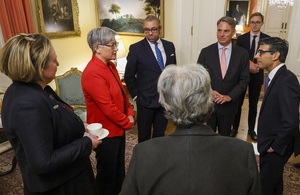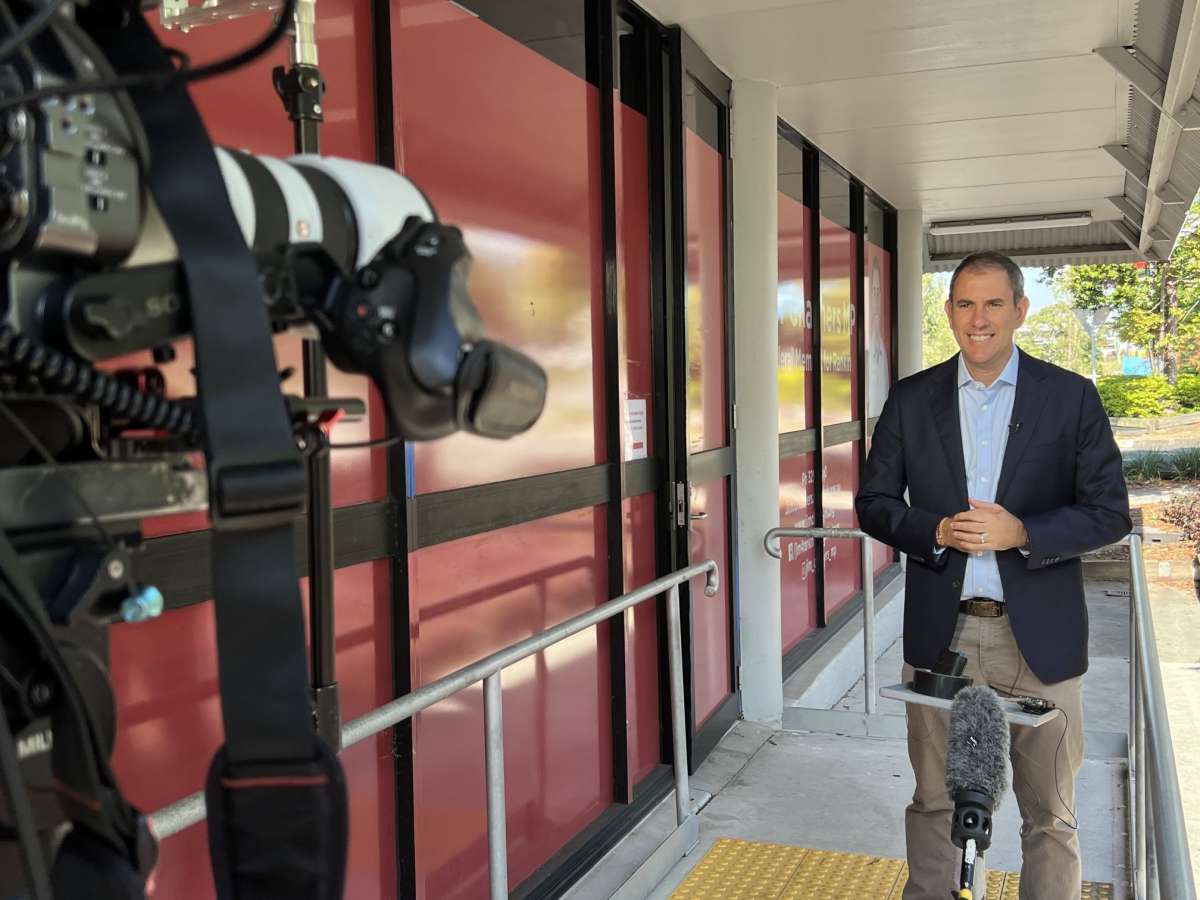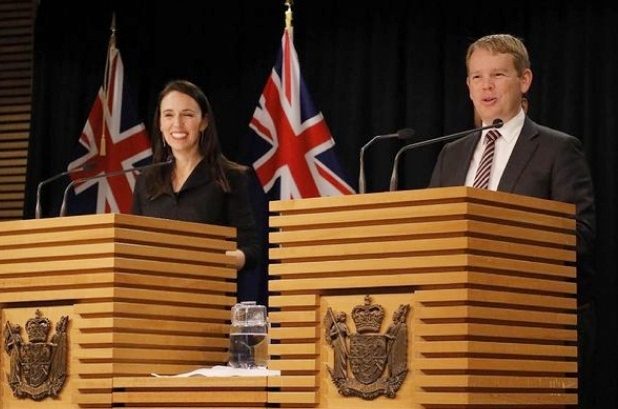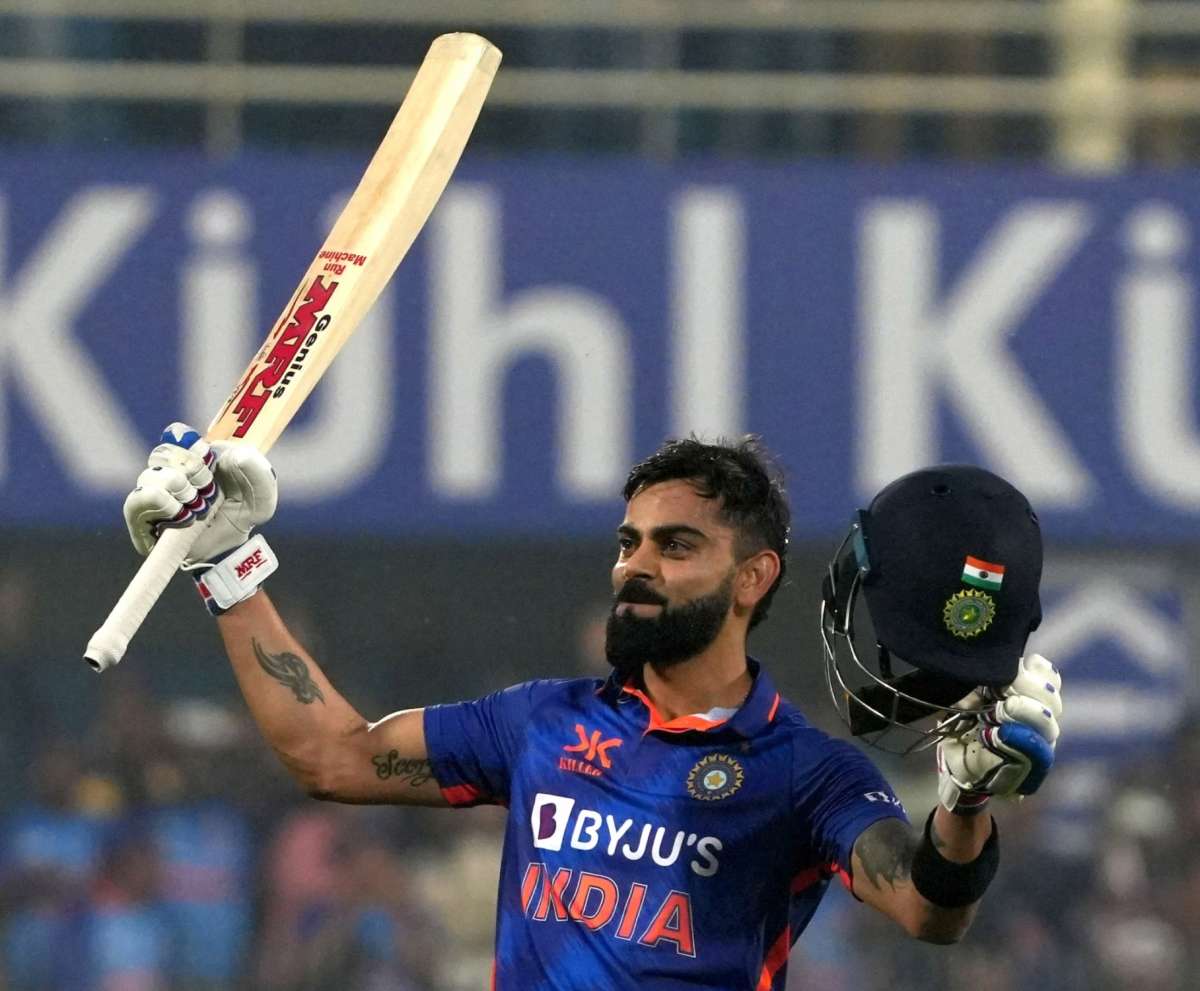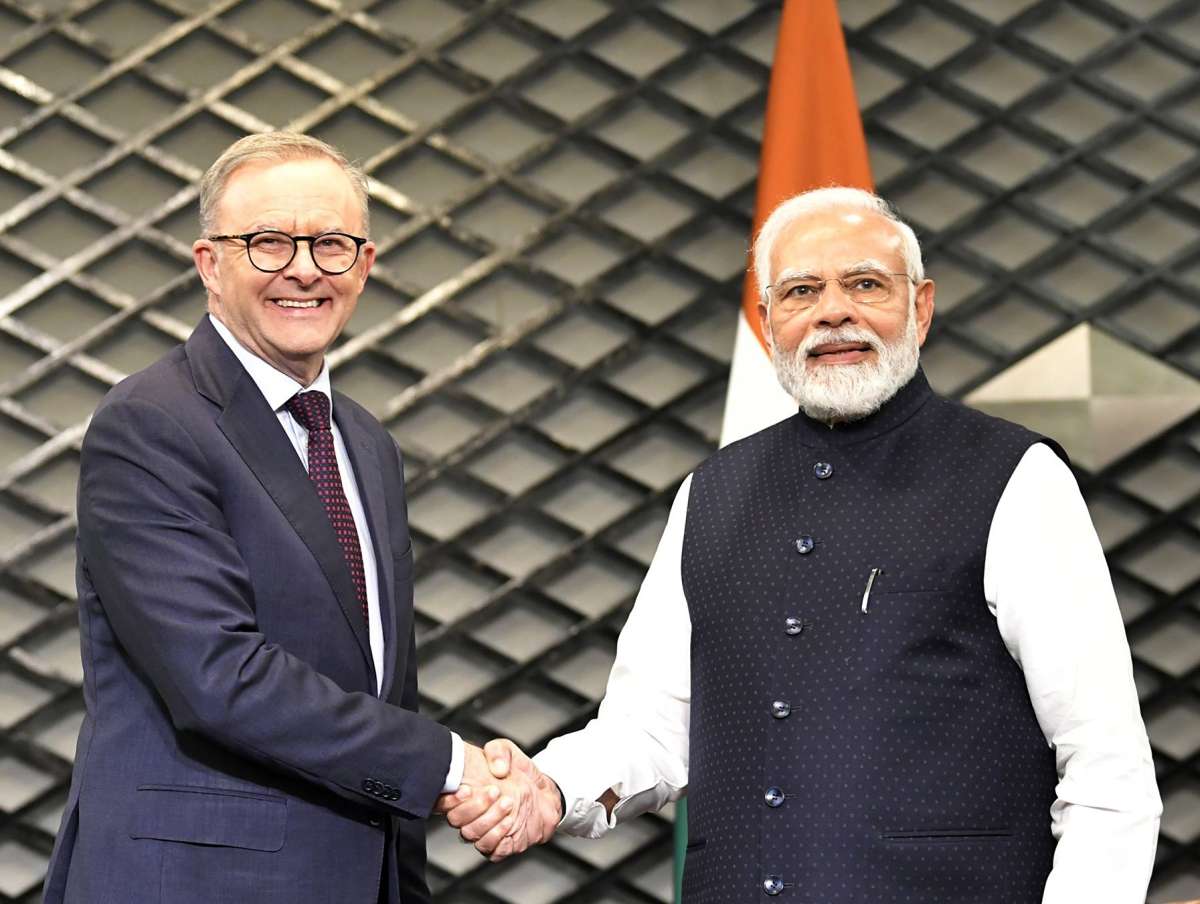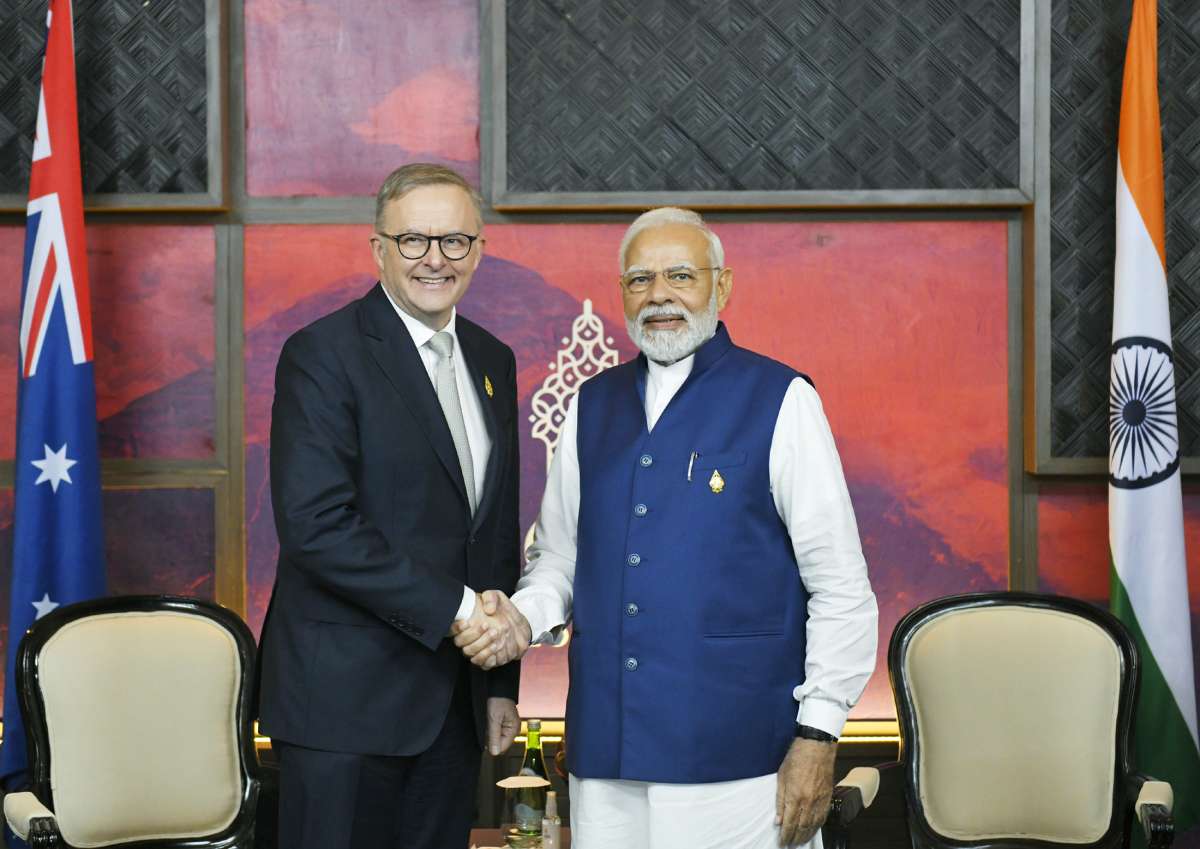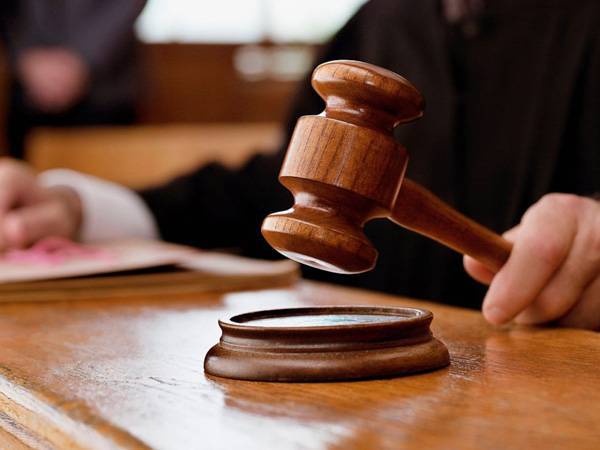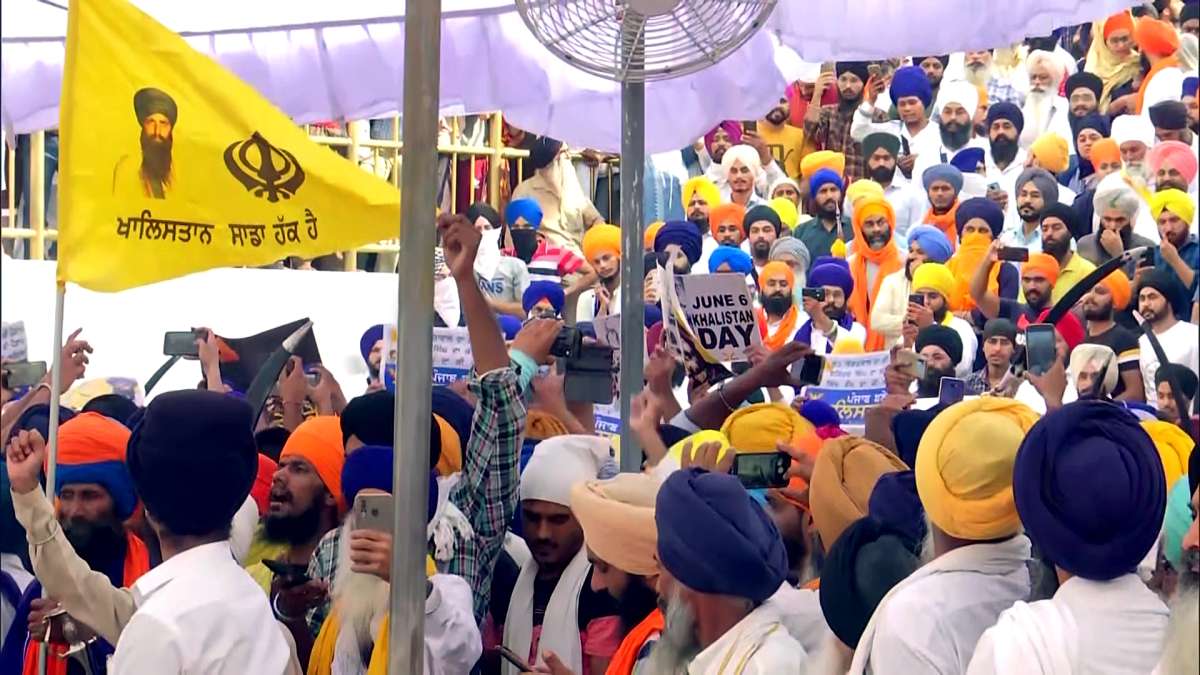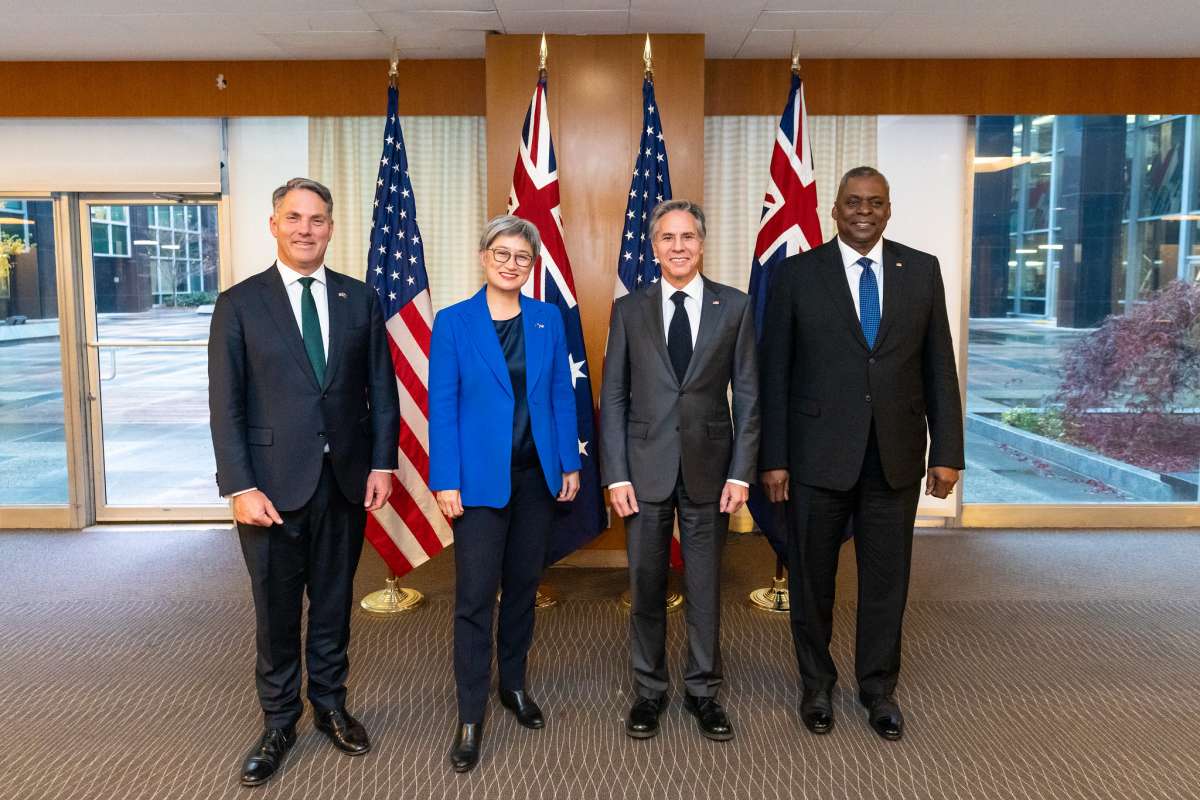Foreign Secretary James Cleverly said, “The UK and Australia are the best of mates and for over a century we have been hard-headed champions of freedom and democracy…reports Asian Lite News
The fields of Salisbury Plain and historic dockyards of Portsmouth will be the backdrop to significant talks between the UK and Australia’s defence and foreign ministers today, as both nations discuss how to intensify efforts to support a free and open Indo-Pacific.
Foreign Secretary James Cleverly and Defence Secretary Ben Wallace will host their Australian counterparts, Foreign Minister Penny Wong and Defence Minister and Deputy Prime Minister Richard Marles, in London, Salisbury and Portsmouth this week for the annual UK-Australia ‘AUKMIN’ summit.
Following bilateral talks with their opposite numbers on Wednesday, the group will visit Salisbury Plain to see Australian and UK troops training Ukrainian soldiers. The joint programme, which also involves forces from Canada, Denmark, Finland, Sweden, Norway, New Zealand, Lithuania, and the Netherlands, is part of an acceleration of efforts by the UK and allies to ensure Ukraine wins the war and secures a lasting peace.
On Thursday the group will gather for meetings at the Spinnaker Tower in Portsmouth to discuss the countries’ long-term cooperation to promote prosperity in the Indo-Pacific as well as broader cooperation on climate, security and trade.
The UK’s work with Australia to promote open societies and economic security in the region area is crucial to boosting trade with the Indo-Pacific and delivering on the Prime Minister’s priority to grow the economy, creating better-paid jobs and opportunity right across the country. The Indo-Pacific is set to account for half of global growth by 2050.
Foreign Secretary James Cleverly said, “The UK and Australia are the best of mates and for over a century we have been hard-headed champions of freedom and democracy. In an increasingly volatile world, we are pursuing a forward-looking agenda with Australia as a trusted partner and friend. Together we are promoting prosperity and security in the Indo-Pacific, boosting trade, and pursuing our vital climate targets.”
Defence Secretary Ben Wallace MP said, “Australia is our close and valued defence partner, with historic ties spanning the decades. The Australian Armed Forces are providing vital training for the brave Ukrainian men and women here in the UK, learning the skills they will need to return and defend their country. We are also progressing our collaboration over the AUKUS programme, promoting security and prosperity across the Indo-Pacific.”
The ministers will also look at how the UK and Australia can step up their commitments to limit global temperature rises to 1.5 degrees, including by transitioning to renewable energy, promoting low-emission technologies as part of a joint Clean Tech partnership the 2 countries signed in 2021, as well as supporting island states in the Pacific who are on the front line of the climate emergency.
More widely, they will take stock of progress on AUKUS – a defence and security pact between the UK, US, and Australia which will deliver a nuclear-powered submarine capability to Australia.
They will also continue discussions on the UK’s accession to the Comprehensive and Progressive Agreement for Trans-Pacific Partnership (CPTPP), a £9 trillion free trade bloc, and progress towards the UK ratifying the bilateral Free Trade Agreement with Australia, expected to come into force in spring this year.
The iconic venue for talks in the historic naval town reflects the 2 nations’ shared seafaring heritage. The summit also affirms the UK’s ongoing commitment to Australia and the Indo-Pacific region, and follows a busy 18 months of UK engagement in the region, including the visit of the Carrier Strike Group, the AUKUS agreement, our Prime Ministers meeting at the G20 in Bali, and Indo-Pacific Minister Anne-Marie Trevelyan’s visit to Australia at the end of last year.
ALSO READ-India views Austria as serious, consequential partner’

